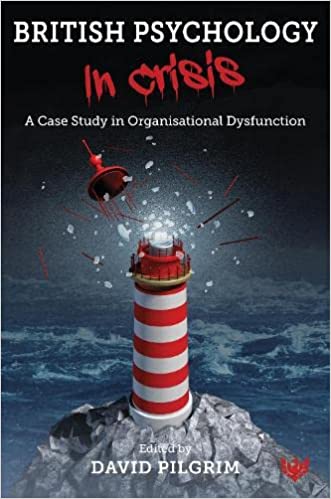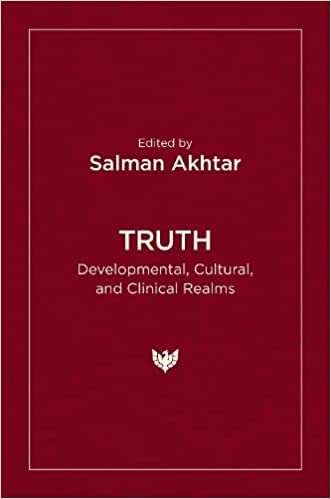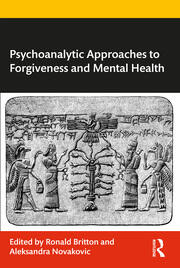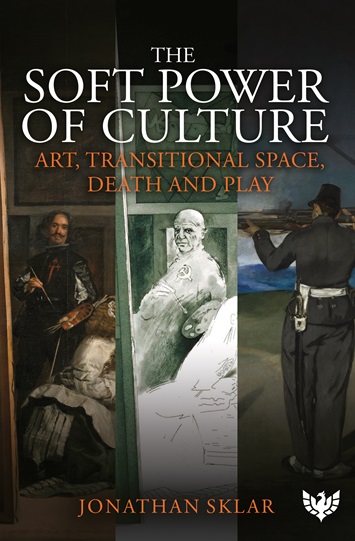Plato’s Ghost: Minus Links and Liminality in Psychoanalytic Practice
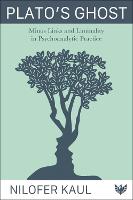
Book Details
- Publisher : Karnac Books
- Published : November 2021
- Cover : Paperback
- Pages : 204
- Category :
Psychoanalysis - Catalogue No : 95906
- ISBN 13 : 9781912691975
- ISBN 10 : 9781912691
There are currently no reviews
Be the first to review
Psychoanalytic encounters are filled with the unknowability of two unconscious minds meeting. Here one may forge a link that enables the process of meaning-making, or else it can become the space for destruction, perversion, evacuation, regression, and stasis. The area that lies between the mind of the analyst and that of the analysand is thus the liminal area of psychoanalysis – of growth, change, turbulence, as well as that of impasse, bastion, and failure. This latter could be what Bion meant by minus links.
It seems that the primitive part of the mind is always looking for ways to evade psychic pain and emotional truth is always in peril. Analytic links are always fraught with danger. Minus links share with each other the quality of evading truth and therefore inhibiting emotional growth and the capacity to give meaning to experiences. Blind spots may be enabled by analytic allegiance to our particular schools, our inability to forge a technique in the face of the protomental apparatus which can breed arrogance, the complacencies of language, gaps between our theoretical allegiance and our technique, and, finally, all too often, our unwillingness and inability to get in touch with our true experience. Would it help to chronicle our quotidian failures?
In these liminal moments, the links between analyst and analysand slide away from the emotional truth, rather than towards it. Nilofer Kaul presents these moments and explores the complex reasons behind them in a stunning debut work that questions the heart of analytic practice.
Reviews and Endorsements
Nilofer Kaul’s inspirational book gently sways us in the liminal space between sleep and waking, conscious and unconscious, truth and deception. Her literary scholarship grants her further tools to approach ineffable emotional experience and give words to wordless psychic realms, the ghosts of psychoanalysis. Writing at the threshold of what is almost unbearable, “on the foremost circle that surrounds the abyss”, her book is deeply moving, and yet unsettling, perturbing. Kaul does not let us rest on our laurels, but compels us to acknowledge, not only our patients’, but also our own too-often collapse to negative links, lies, and untruthful interpretations. Kaul thus touches the heart of psychoanalytic practice, that which lies in the thin, hairbreadth space between truth and its evasion.
Avner Bergstein, training and supervising psychoanalyst, Israel Psychoanalytic Society
Plato’s Ghost is an absorbing and highly personal meditation on the positive and negative linkages that promote or stunt personality development, and the role of language in advancing or disguising truthful links. Plato’s classic formulation of truthful or lying representations becomes, in Bion’s model of the mind, his now familiar formula of LHK versus minus LHK – positive and negative emotional links. Using this model as her basis, Nilofer Kaul terms the points of potential change “liminal spaces” inhabited by the “ghosts” of internal objects of both analyst and analysand which meet through the transference. The book is wide-ranging in its references but Kaul draws her most telling examples from her own clinical work, in close association with evocations of emotional states in literature and myth.
She is especially concerned with the analyst’s own linguistic temptations: to use what Bion terms the “language of substitution” in the face of feelings of helplessness, when pressured either by sterile desires for professional or social “success” or excessive desire to help the patient. Kaul was a teacher of literature for many years and the book is structured along dichotomies that are familiar in literature, such as equivocation versus ambiguity or paradox, communication versus deception, emotionality versus sentimentality, empathy versus collusion, which are applicable also to the intimacy of the psychoanalytic consulting room. Her sensitivity and courage in exploring the nature of apparent “failures” or unsatisfactory endings in terms of the analyst’s own learning from experience, rather than romanticising them for self-protection, will be found valuable and appreciated by many practising analysts.
Meg Harris Williams, psychoanalytic and literary author
Plato’s Ghost is a beautiful exploration of what constitutes the paradoxical essence of analytic space. It is not by chance that Kristeva borrows from Plato the concept of the “semiotic chora”, which we can define as the dynamic and affective-sensory container within which the “aesthetic” birth of the subject takes place. From the outset, this kind of external extension of the maternal womb is a dialectical space. It is neither one nor the other, but of both and neither. Psychoanalysis has many concepts to allude to dimension: transference, analytical field, hymenality, transitionality, middle kingdom, wakeful dream, caesura, reversible perspective, negative capability, no-thing, projective identification, and so on. Being an analyst means knowing how to inhabit this spatiality, in which the ego becomes itself only if it allows itself to be alienated from the other, without ever collapsing the processuality onto any of the terms that establish it. Nilofer Kaul demonstrates a great skill in dealing with such challenging but fascinating themes. Hers is also an important contribution to the current and very lively development of psychoanalysis inspired by Bion and post-Bionian models, in a word, a psychoanalysis more that is of the order of becoming than of having. Last, but not least, the author style of writing is excellent, which makes for not only a rewarding but also for a fluent and very pleasant reading. I can warmly recommend Plato’s Ghost: Minus Links and Liminality in Psychoanalytic Practice not only to all psychoanalysts and psychotherapists who are passionate about their work and feel the need to constantly refine the tools they use in their clinical practice, but also—for example because of the great attention to the theme of language and its relation to the unconscious that runs throughout the text—to scholars of the humanities.
Giuseppe Civitarese, author of Sublime Subjects: Aesthetic Experience and Intersubjectivity in Psychoanalysis
Table of Contents
Acknowledgements
About the author
Prologue: On liminality and minus links
Introduction
Part I: Language
1. Unconscious and psychoanalysis
2. Vocabulary and syntax
3. Sentiment and emotion
4. Pride and arrogance
Part II: Vertices
5. Womb and foetus
6. Mind and body
7. Endings and failures
Epilogue: Solitude or blank desertion
References
Index
About the Author(s)
Nilofer Kaul, PhD, is a training and supervision analyst based in Delhi, India. She taught English Literature at Delhi University. Her doctorate work was on Masks and Mirrors: Configurations of Narcissism in women’s short stories for which she also got the Charles Wallace Grant. She has published many chapters and papers and delivered many papers, including Parasitism: An Autistic Island which received the 2018 Tustin award for best paper. She is also a part of a supervision and training group of the Delhi Chapter of the Indian Psychoanalytic Society.
Customer Reviews
Our customers have not yet reviewed this title. Be the first add your own review for this title.
You may also like
British Psychology in Crisis: A Case Study in Organisational Dysfunction
David Pilgrim
Price £17.99
save £2.00
The Soft Power of Culture: Art, Transitional Space, Death and Play
Jonathan Sklar
Price £26.99
save £3.00




